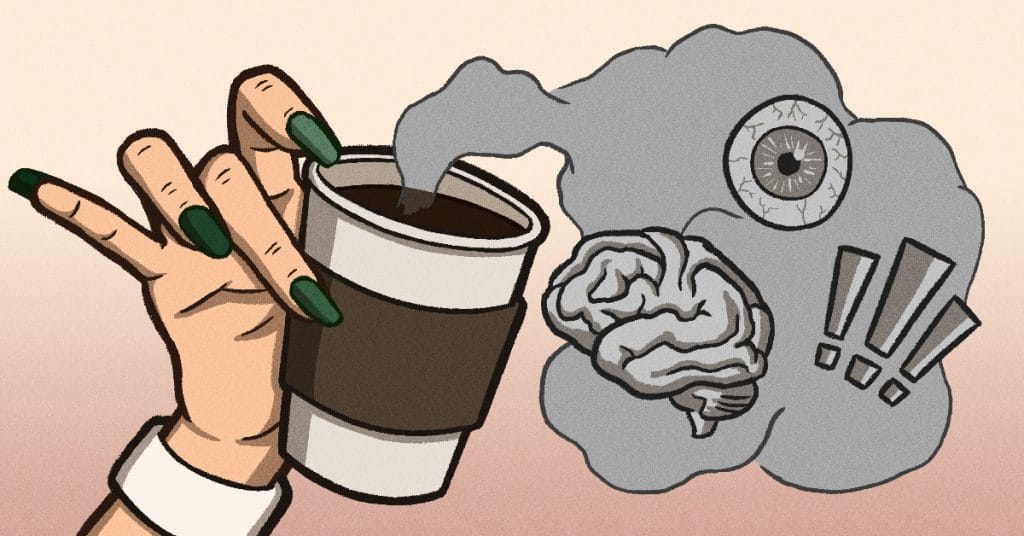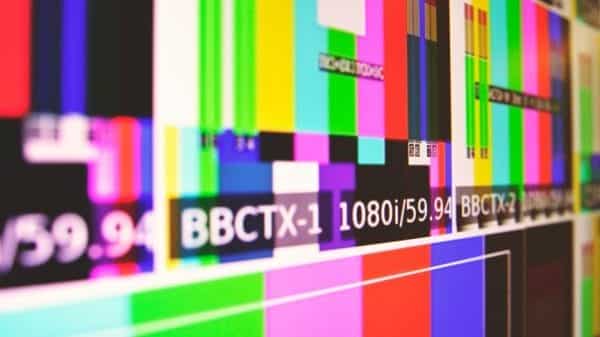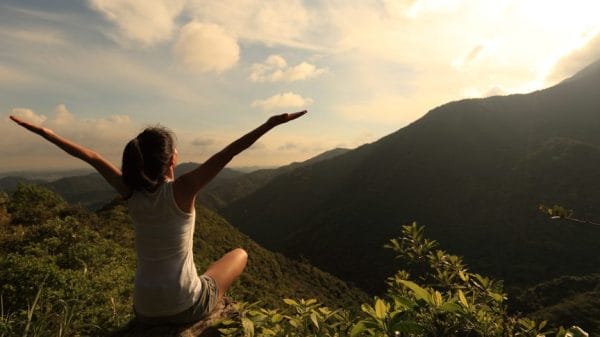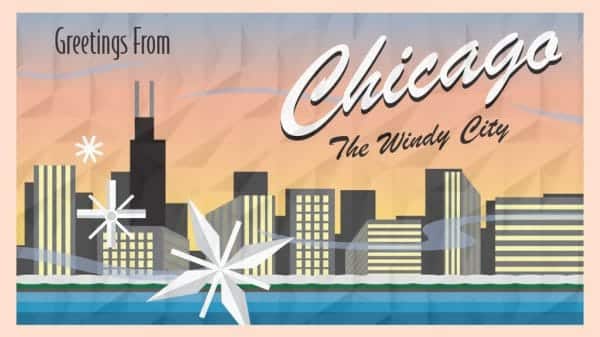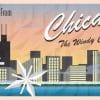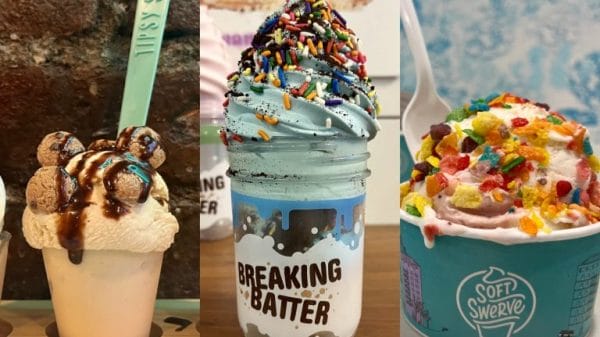Picture this: you wake up in the morning to your alarm going off. You know you have to get out of bed because you have a presentation today. Turning off your alarm, you roll out of bed and start getting ready. You decide to have a healthy breakfast of porridge or eggs on toast perhaps. But what do you choose to drink? Water? Orange juice? Coffee?
Approximately 2 billion cups of coffee are consumed in the world every day, according to a study published by BMJ Nutrition, Prevention & Health.
Based on this, it’s safe to assume you chose coffee to complement your breakfast.
Coffee is much more than just a drink. Coffee is a culture, an economy, and even a passion or hobby for some. Social media promotes this image.
Coffee & Social Media
Think of Emma Chamberlain. She is a YouTube influencer that made coffee part of her brand. Often being referred to as “the coffee girl” or “cold brew queen,” she shared her enjoyment of coffee with her rapidly growing audience. Many of her vlogs included time spent at cafes with friends, morning brew routines, and reviews of her favourite coffees.
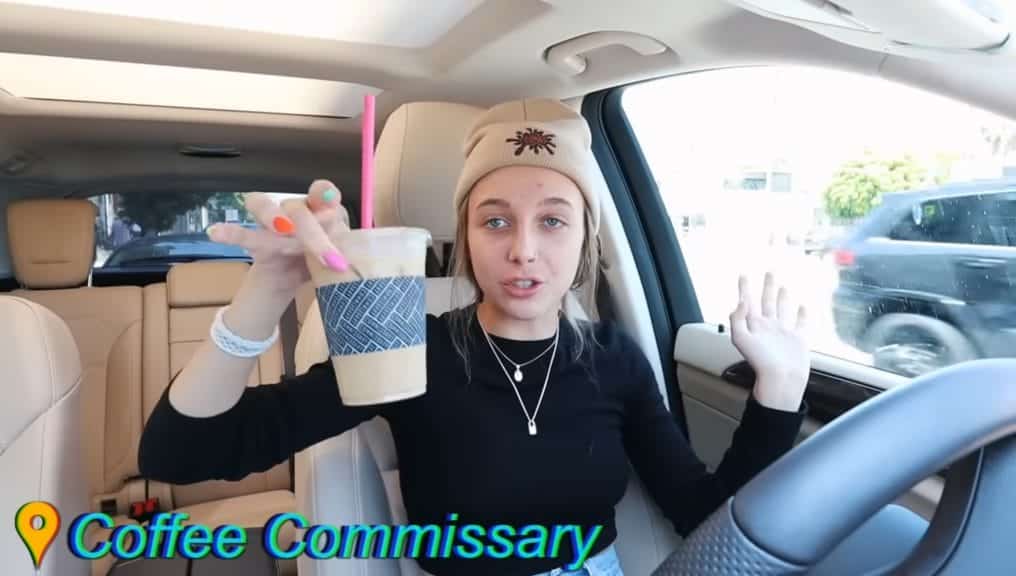
In an interview with LinkedIn News, she said “[Coffee] sparked joy, provided comfort, supported creativity and inspired conversation. It became a passion of mine.”
She took her passion for coffee to a new level when it grew from a part of her brand to her literal own brand. She founded Chamberlain Coffee in 2020, which soon became a hit with her audience.
Kate Ebner, college student and Chamberlain fan, explained that she started drinking coffee near age 14 and was drinking it regularly by the time she entered her junior year of high school. She said that seeing Emma’s vlogs played a big role in this.
“You can’t talk about social media’s role in coffee without mentioning Emma Chamberlain,” Ebner argued.
Other influencer’s also affect people’s coffee drinking habits. According to a survey by OnePulse, 34% of consumers have ordered a custom coffee drink because they heard about it on social media.
Not only has social media promoted coffee consumption but it has turned it into an aesthetic.
The Coffeehouse Aesthetic
We have all heard of the numerous aesthetics that emerge out of social media trends. Some examples include cottagecore, dark academia, and witchcore. The coffeehouse aesthetic is another to add to the list.
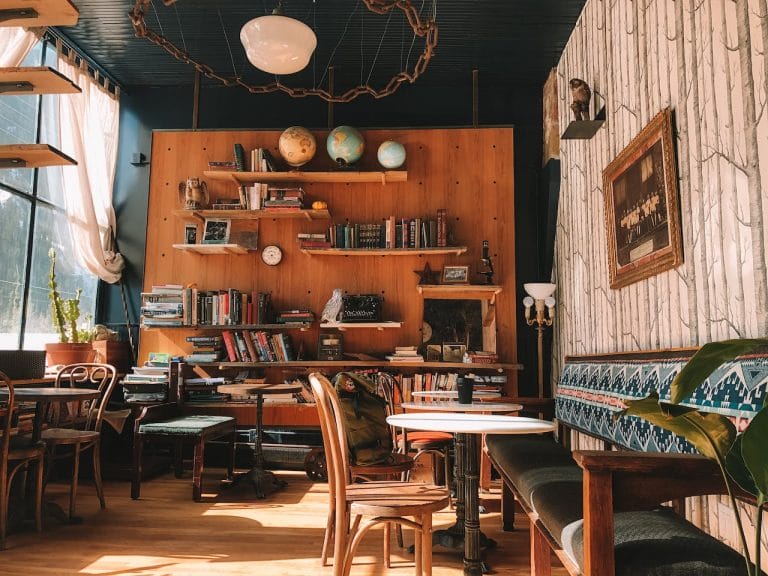
If you have scrolled on Instagram or Pinterest, you’ve likely seen photos that embody the coffeehouse aesthetic. It usually consists of warm colors such as amber and light brown, accented with neutral colors like white or gray. The photos will often show coffee, books, and even plants. People will be studying or meeting up with friends. You may picture a girl wearing glasses and a comfy sweater.
Coffeehouse aesthetic exudes relaxation and calmness. It promotes socialization and productivity. Why wouldn’t you want to go get a coffee and experience this?
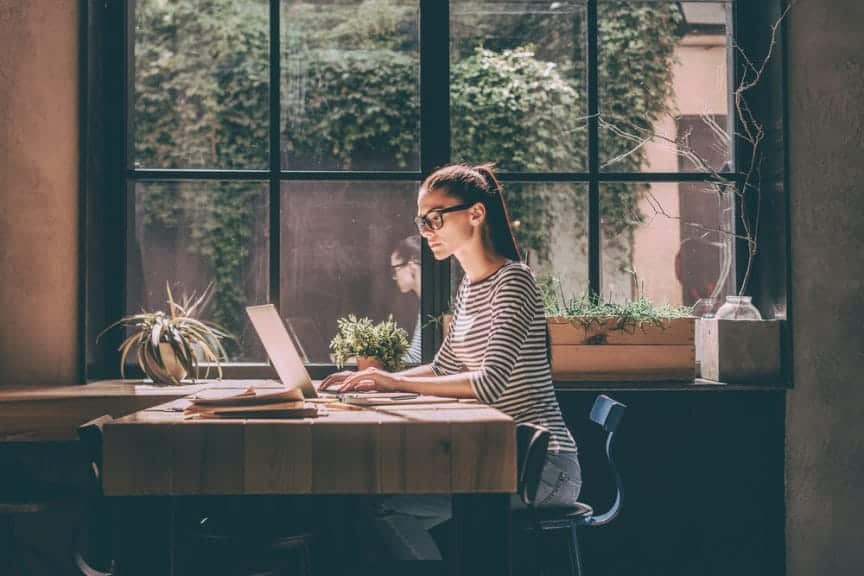
“When I see a picture with the coffeehouse aesthetic specifically, it makes me want to get a coffee or go to a coffee shop because it looks cozy and probably smells like coffee. It’s not too bright like the super trendy coffee shops.”
Kate Ebner, 21
The Flipside of Coffee
Social media and the coffeehouse aesthetic has turned sipping a cup of coffee into a feeling that people crave and go out of their way to achieve. In doing this, it has normalized drug use.
Caffeine is the most widely used psychoactive substance in the world, according to the Centre for Addiction and Mental Health. While it seems like drinking coffee is just a light-hearted activity, its addictive quality can have negative consequences on your health.

The average cup of coffee has about 95 mg of caffeine; humans are only supposed to consume 400 mg of caffeine per day. This means that if you drink four cups of coffee per day, you’ve hit your limit from coffee alone.
According to a study done by Drive Research, 36% of people drink 3 to 5 cups of coffee per day, maxing out how much caffeine they should be consuming.
You may be asking: drinking coffee can’t be that bad, can it? Sure, a cup here and there won’t kill you. However, exceeding recommended amounts of any substance is always risky and so high caffeine content wreaks more havoc on your body than you may realize.
Caffeine & Its Negative Consequences
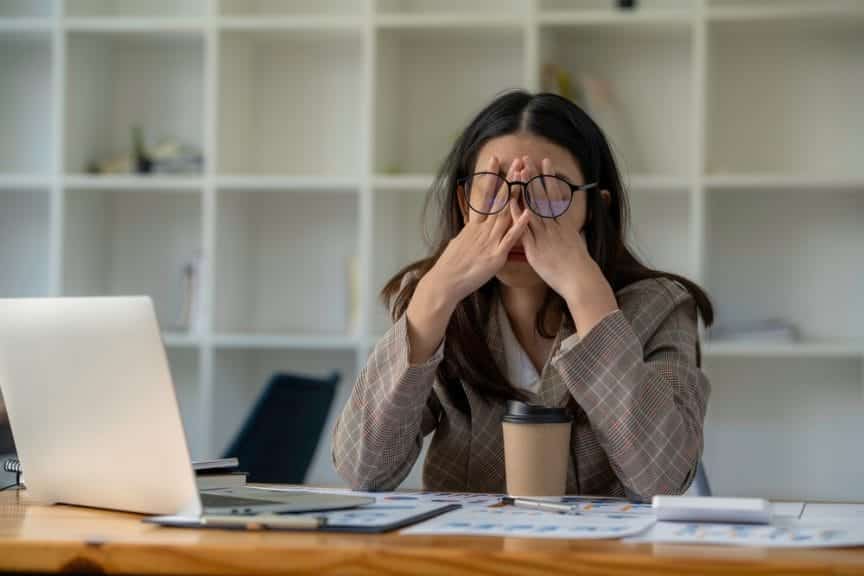
Here are some side effects of high caffeine intake:
1. Headaches
Ever drink coffee and later get a headache? This is because caffeine narrows blood vessels that surround the brain, which in turn can cause a headache.
2. Dizziness
Caffeine can cause dizziness in the same way that it can cause headaches. Caffeine constricts your blood vessels which interferes with normal circulation. When circulation to the brain decreases, so does the amount of oxygen that your brain receives which causes dizziness.
3. Insomnia
As you probably know, caffeine is a stimulant. It blocks the effects of adenosine which is the chemical that makes you feel tired. Oftentimes people underestimate the amount of caffeine in their system and try to go to bed before the caffeine wears off, preventing the ability to fall asleep in a timely manner.
4. Alertness…or anxiety
Not only does caffeine increase alertness by blocking the effects of adenosine, but it also increases release of adrenaline – the “fight or flight” chemical. This can cause you to feel anxious and restless. Ever heard of the coffee jitters?
5. High blood pressure
Because of caffeine’s stimulatory effect on the nervous system, it increases blood pressure. This can also cause a rapid heart rate.
6. Dehydration
Caffeine is a diuretic, meaning that it helps your body expel extra salt and water by causing you to urinate more. This can cause frequent urination, which in turn can cause dehydration if you don’t replenish your fluids enough.
7. Digestive issues
Caffeine increases the release of stomach acids. This can cause an upset stomach or even heartburn. The release of gastrin (gastric acid) also tends to speed up the activity in the colon which causes the laxative effect often associated with coffee, like loose stools.
8. Dependency
Caffeine can trigger the same brain chemicals as cocaine, but it doesn’t cause your typical addiction. Rather, it leads to psychological and physical dependency. This especially occurs when you consume it in high dosages. Because of this dependency, people can go through withdrawals when they start to consume less. Withdrawal symptoms include: drowsiness, irritability, and nausea just to name a few.
9. Fatigue
Another negative consequence of caffeine can be the rebound fatigue you experience after the energy-boosting effects wear off. This can lead to people being more tired later in the day, or even the following day. It is also one of the reasons why people may consume multiple cups each day.
If this isn’t enough to deter you, see what happened to this man after consuming too much caffeine.
For next time…
So, you tell me. Is that cup of coffee worth it?
Obviously seeing a post on social media doesn’t immediately cause caffeine addiction and anything in moderation is fine. However, the next time you’re scrolling on social media and see an influencer sharing their go-to coffee order or see a post with the coffeehouse aesthetic, are you going to go grab a cup?
If you have experienced these symptoms, maybe cut back a little and keep coffee as a special treat. You deserve a treat, not an upset stomach and anxiety from consuming too much of it.


